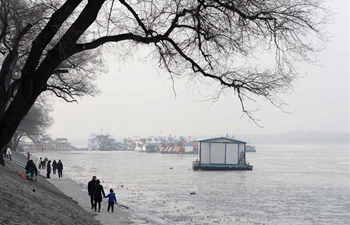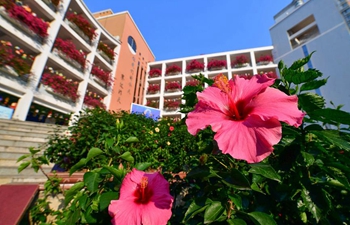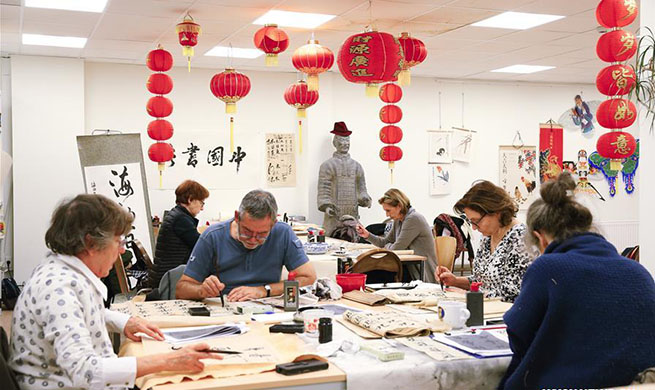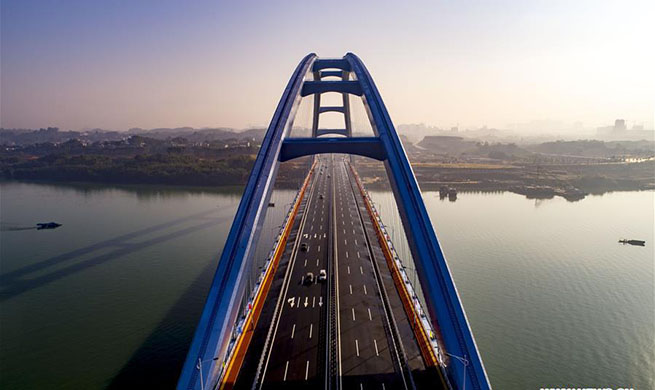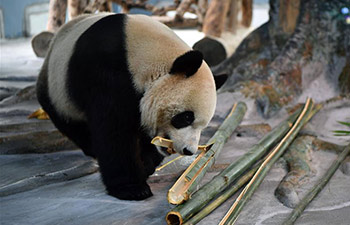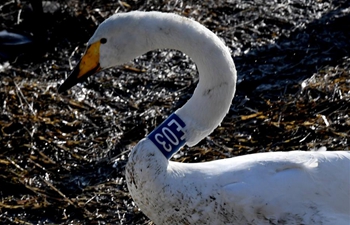by Dana Halawi
BEIRUT, Nov. 27 (Xinhua) -- Lebanon's trade deficit widened by 5 percent to 13 billion U.S. dollars in the first nine months of 2018 from the same period in 2017.
Lebanon's Byblos Bank, which released the figures from the Higher Customs Council, attributed the rise in deficit to the increase in imports by 4.9 percent to 15.2 billion dollars in the first nine months, during which the aggregate exports grew by 4.1 percent to 2.2 billion dollars.
Adnan Rammal, representative of the trade sector in the Economic and Social Council, told Xinhua that Lebanese have increased their purchases in the past year due to the hike in salaries for public sector employees which was approved by President Michel Aoun in August 2017.
He also said that Lebanese increased their consumption of imported products due to their higher quality than local produce.
Another reason, Rammal said, for the increase in imports is due to the failure by local factories to increase their production to satisfy the local demand for products.
"Local manufacturers do not have enough money to expand their businesses, not to forget the high cost of production in Lebanon," he said.
Lebanese manufacturers have been pressing successive governments to cut the cost of production, citing that many of them were forced to close down due to heavy losses.
One of the major obstacles to reducing the cost of production in Lebanon is the high cost of electricity.
The Lebanese government finances more than 90 percent of purchases of fuel at a fat bill of 1.8 billion dollars annually, which incurs heavy costs for consumers.
Moreover, consumers and factories pay a second bill for private generators due to incapacity of the government to produce the needed amount of electricity.
Rammal added that the cost of production in Lebanon is also burdened by the high cost of labor compared to other countries that compete with Lebanon.
Independent economist Jassem Ajaka echoed Rammal's views, saying that the agriculture sector is very weak in Lebanon and lacks modern technologies that enables it to satisfy the full demand of the Lebanese market.
Ajaka added that the government has opened the Lebanese market in a way that allows foreign products to enter the market and compete with local produce.
"The government is well aware that Lebanese producers cannot compete with foreign ones," he said.
Experts interviewed by Xinhua said that the government should impose custom fees on imports in a bid to reduce competition by foreign products and boost the consumption of local products.
"The government should impose custom fees on products that can be produced in Lebanon," he said.
Likewise, Rammal said that the government should impose custom fees on imports to protect local production.
But he added that the Economy Ministry should also control prices at the same time to prevent manufacturers from increasing their prices and monopolizing the market which will hurt merchants and consumers.
Meanwhile, Ajaka said that the government should invest in modernizing the agricultural sector and empower it to be capable of satisfying local needs of agricultural products.
"The government should introduce new equipment and technologies for the modernization of this sector," he said.
Ajaka said that if Lebanon succeeds in improving its manufacturing industry so that is capable of producing the items that are imported by Lebanese merchants, it could save 8 billion dollars from the import bill annually.
Byblos Bank said that China was the main source of imports for Lebanon in the first nine months of 2018 at 1.54 billion dollars, followed by Greece, Italy, the United States, Germany, Turkey and Russia.







